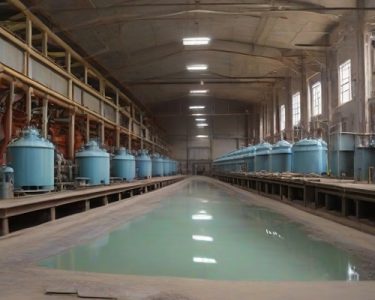The Potential of Buy-to-Let Investments in Dubai
Dubai, renowned for its iconic skyline, luxurious lifestyle, and thriving economy, has emerged as a hotspot for real estate investment in recent years. Among the various investment avenues, the buy-to-let strategy has gained significant traction, offering investors an opportunity to capitalize on the city’s dynamic property market. In this article, we delve into the intricacies of buy-to-let investments in Dubai, exploring its potential, challenges, and key considerations for prospective investors.
Understanding Buy-to-Let Investments in Dubai
Buy-to-let, a popular investment strategy globally, involves purchasing a property with the intention of renting it out to generate rental income. In Dubai, this strategy has become increasingly appealing due to the city’s robust rental market, favorable legal framework, and high demand for rental properties, driven by a growing population, expatriate influx, and transient workforce.
Dubai’s Property Market Dynamics
Dubai’s property market is characterized by its resilience, diversity, and innovation. Despite occasional fluctuations, the market has demonstrated long-term growth prospects, attracting investors from around the world. Factors such as strategic location, world-class infrastructure, tax-free environment, and visionary leadership contribute to Dubai’s appeal as a real estate investment destination.
Benefits of Buy-to-Let Investments in Dubai
Steady Rental Income:
Dubai’s vibrant rental market ensures a steady stream of rental income for buy-to-let investors, offering attractive yields compared to many other global cities.
Capital Appreciation:
While generating rental income, investors also benefit from the potential appreciation of property values over time, amplifying their overall returns on investment.
Diversification:
Investing in Dubai’s real estate market provides investors with an opportunity to diversify their investment portfolio, reducing overall risk exposure.
Tax Efficiency:
Dubai’s tax-friendly environment, with no income or capital gains taxes on property investments, enhances the profitability of buy-to-let investments.
Potential for Long-Term Growth:
With ambitious development plans, strategic initiatives, and mega-events such as Expo 2020, Dubai offers promising prospects for long-term capital growth in the real estate sector.
Challenges and Considerations in buy-to-let investments in Dubai
While buy-to-let investments in Dubai offer lucrative opportunities, investors must also navigate certain challenges and considerations:
Market Volatility:
Like any real estate market, Dubai’s property sector is susceptible to market fluctuations influenced by global economic conditions, geopolitical factors, and local regulations.
Regulatory Environment:
Investors must stay informed about regulatory changes, including tenancy laws, taxation policies, and visa regulations, which may impact the profitability and feasibility of buy-to-let investments.
Property Management in Dubai:
Effective property management in Dubai is crucial for maximizing rental yields and maintaining the value of investment properties. Investors may opt for professional property management services to handle tenant relations, maintenance, and administrative tasks.
Vacancy Risks:
While demand for rental properties in Dubai remains strong, investors should be prepared for potential periods of vacancy and incorporate contingency plans to mitigate rental income disruptions.
Maintenance and Upkeep:
Property maintenance and upkeep are ongoing responsibilities for landlords, requiring financial resources and proactive management to ensure the property remains attractive to tenants and retains its value.
Key Strategies for Success in Dubai Property Investment
To optimize the success of buy-to-let investments in Dubai, investors should consider the following strategies:
Thorough Research:
Conduct comprehensive market research to identify high-demand areas, rental trends, and potential investment opportunities aligned with your investment objectives and risk appetite.
Financial Planning:
Evaluate your financial position, including investment capital, financing options, expected returns, and risk tolerance, to formulate a realistic investment strategy and budget.
Due Diligence:
Perform due diligence on prospective properties, considering factors such as location, property type, quality of construction, amenities, and potential rental yields.
Professional Advice:
Seek guidance from experienced real estate professionals, including agents, property managers, legal advisors, and financial consultants, to navigate the complexities of the Dubai property market and make informed investment decisions.
Long-Term Perspective:
Adopt a long-term investment horizon and resist the temptation to speculate or chase short-term gains, focusing on building a diversified portfolio of income-generating properties with sustainable cash flow.
Market Analysis and Investment Strategies in Dubai
Before diving into buy-to-let investments in Dubai, it’s essential to analyze the current market trends and identify strategic investment opportunities.
Market Analysis in Dubai:
Demand-Supply Dynamics:
Assess the balance between supply and demand in different segments of the real estate market, including residential, commercial, and hospitality sectors. Identify areas with underserved demand or limited supply to capitalize on rental income potential.
Location Analysis:
Evaluate the desirability and growth prospects of various neighborhoods and communities in Dubai. Factors such as proximity to key amenities, transportation hubs, educational institutions, and employment centers influence rental demand and property values.
Rental Yields:
Calculate rental yields based on prevailing market rents and property prices to gauge the income-generating potential of investment properties. Compare yields across different areas and property types to identify high-performing investment opportunities.
Market Trends:
Stay abreast of market trends, including rental trends, occupancy rates, sales transactions, and price movements. Monitor macroeconomic indicators, regulatory developments, and geopolitical factors that may impact the real estate market’s performance.
Investment Strategies in Dubai:
Targeted Segments:
Identify target market segments based on investor preferences, risk profile, and investment objectives. Options range from high-end luxury properties in prime locations to affordable housing options catering to middle-income tenants.
Off-Plan vs. Ready Properties:
Evaluate the pros and cons of investing in off-plan (pre-construction) properties versus ready-to-move-in properties. Off-plan investments may offer attractive payment plans, capital appreciation potential, and customization options but entail construction risks and longer wait times for rental income. Ready properties provide immediate rental income but may command higher purchase prices.
Portfolio Diversification:
Diversify your investment portfolio by allocating funds across different property types, locations, and investment strategies. Consider investing in a mix of residential, commercial, and hospitality properties to spread risk and enhance overall returns.
Value-Add Opportunities:
Explore value-add opportunities such as property renovations, upgrades, or repositioning strategies to enhance rental yields and property values. Identify properties with renovation potential or underperforming assets that can be optimized through proactive management and value enhancement initiatives.
Exit Strategies:
Develop exit strategies to capitalize on investment opportunities and mitigate risks. Options include long-term buy-and-hold strategies, property flipping, portfolio optimization, or strategic divestments based on market conditions and investment objectives.
Risk Management and Legal Considerations
Mitigating risks and complying with legal requirements are paramount for successful buy-to-let investments in Dubai.
Risk Management:
Financial Risk: Assess financial risks associated with property investments, including market volatility, currency fluctuations, interest rate changes, and financing risks. Maintain adequate liquidity reserves and consider risk mitigation strategies such as diversification and hedging.
Operational Risk: Implement robust property management practices to minimize operational risks, including tenant disputes, maintenance issues, vacancy losses, and regulatory compliance challenges. Engage reputable property management firms with local expertise to handle day-to-day operations effectively.
Legal Risk: Stay informed about local laws, regulations, and contractual obligations governing property ownership, leasing, and landlord-tenant relationships in Dubai. Consult legal experts to draft airtight lease agreements, navigate dispute resolution mechanisms, and ensure compliance with regulatory requirements.
Market Risk: Monitor market dynamics and adjust investment strategies accordingly to mitigate market risks such as oversupply, economic downturns, geopolitical instability, or changes in investor sentiment.
Legal Considerations of Buy-to-Let Investments in Dubai:
Ownership Structure: Choose the appropriate ownership structure for property investments in Dubai, considering factors such as asset protection, tax implications, inheritance laws, and regulatory compliance. Options include freehold ownership, leasehold arrangements, joint ventures, or corporate entities.
Tenancy Laws: Familiarize yourself with Dubai’s tenancy laws, including rent caps, eviction procedures, lease registration requirements, security deposit regulations, and tenant rights. Ensure compliance with rental laws and maintain transparent and fair landlord-tenant relationships to minimize legal disputes.
Visa Requirements: Understand visa eligibility criteria for property investors and their dependents in Dubai. Property ownership may entitle investors to residency visas or long-term residence permits, providing additional benefits and facilitating ease of living and doing business in the emirate.
Taxation: Consult tax advisors to understand the tax implications of property investments in Dubai, including property taxes, rental income taxation, capital gains tax, and estate taxes. Leverage tax-efficient investment structures and strategies to optimize returns and minimize tax liabilities within the legal framework.
Conclusion
Buy-to-let investments in Dubai offer a compelling opportunity for investors seeking to capitalize on the city’s dynamic real estate market and lucrative rental yields. By conducting thorough market analysis, adopting sound investment strategies, implementing effective risk management practices, and ensuring compliance with legal requirements, investors can maximize the potential of their investments and achieve long-term financial success in Dubai’s thriving property market. As Dubai continues to evolve as a global business and leisure destination, buy-to-let investments remain a cornerstone of wealth creation and prosperity for savvy investors leveraging the city’s growth and innovation.







